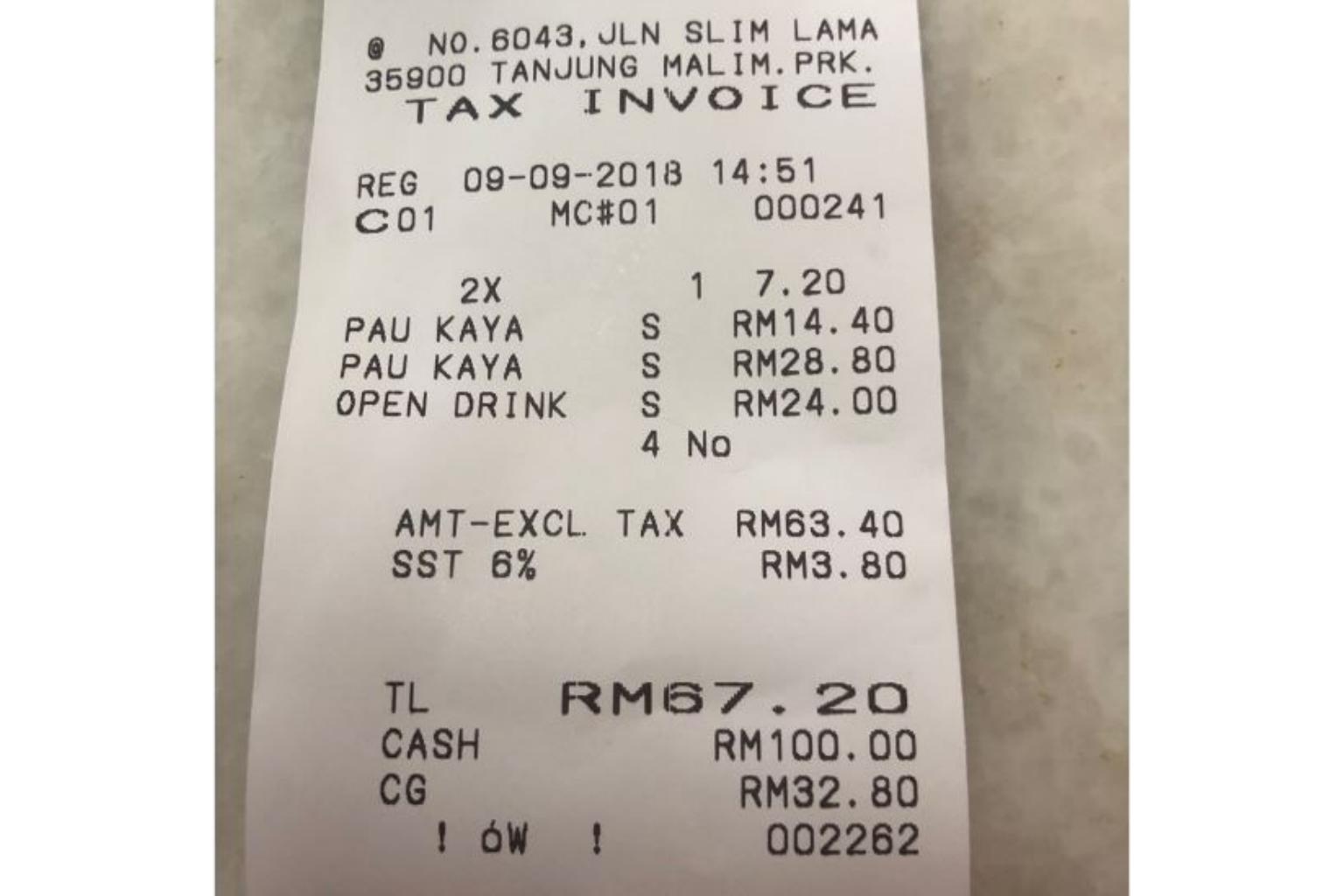Lim Guan Eng slams Najib's remark on paying sales and services tax for 'kuih pau'
Sign up now: Get insights on the biggest stories in Malaysia

Malaysia's former prime minister Najib Razak lamented on his Twitter account that the “kuih pau” he bought was charged Sales and Services Tax.
PHOTO: TWITTER/NAJIB RAZAK
Follow topic:
GEORGE TOWN (BERNAMA) - Malaysia's Finance Minister Lim Guan Eng on Monday (Sept 10) lambasted former prime minister Datuk Seri Najib Tun Razak who disputed the implementation of the Sales and Services Tax (SST).
Lim noted that when the Barisan Nasional (BN) government implemented the Goods and Services Tax (GST), Najib did not hear the grumblings from the people who had to pay tax for every product. However, after the implementation of the SST, the Pekan Member of Parliament had started to complain.
"I'm astonished, when he (Najib) charged GST last time, he didn't complain. At that time (GST) 6 per cent, now also 6 per cent, why at that time he didn't complain but is complaining now.
"We hope the former premier don't become a hero now. When he imposed GST at 6 per cent (it) was far worse. Now (with SST), we are being quite flexible compared to before. Apparently, only now he realised, go to the shop must pay 6 per cent, before this, he was unaware all shops charge 6 per cent," he told a press conference here on Monday.
Najib, in a post on his Twitter account on Sunday (Sept 9), lamented that the "kuih pau" or steamed buns he bought were charged SST and he also uploaded the receipt he received from the restaurant which showed the SST amount of RM3.80 (S$1.30).
"Stopped at Pau Yik Mun restaurant, Tg (Tanjung) Malim to buy pau. Clearly SST is imposed even though this shop is mid-sized! Pau shop also subject to SST," wrote Najib.
Lim, who is also Bagan Member of Parliament, said the implementation of SST was different from GST as only one-third of items were subject to SST compared with GST, which was imposed on all goods and services.
He reiterated that SST was imposed only on restaurants with an annual turnover or threshold value of RM1.5 million (S$500,000) and SST exemption involves rental of small stalls and sale of cigarettes to food and beverage shop operators.
"Under SST we are a bit flexible, we set annual revenue or threshold value of RM1.5 million... three times higher than GST. So, not all are subject to SST, only those with revenue exceeding RM1.5 million must pay SST.
"Not like GST, everything is taxed. It's a clean sweep tax. You carry out business, have to pay tax, don't do business, also pay tax, poor people also have to pay (GST)," he said.
Effective Sept 1, SST is implemented at 10 per cent for sales and 6 per cent for services, replacing GST following the Sales Tax Bill 2018 and Service Tax Bill 2018 which were passed in Parliament on Aug 20.
GST was enforced on April 1, 2015 at a rate of 6 per cent, introduced by the previous government to replace SST.

